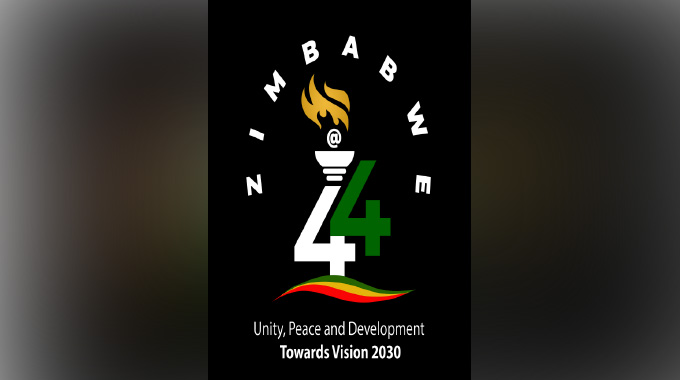Zim must be allowed to sell diamonds

It is instructive to note that the opposition to approving Zimbabwe’s sale of its diamonds stockpile, consisting of some 4,5 million stones valued at around US$2 billion, is led by the US, Canada and Australia.
Ancillary to this Western states-led opposition is a network of human rights organisations based in the West or deriving their funding from the West, which effectively makes them one and the same.
In August, the US-based Rapaport Diamond Trading Network, an industry diamond price and information provider, vowed to expel any member who knowingly traded gems from Zimbabwe’s Marange fields — where it alleges that labourers have been killed and children enslaved.
Curiously, this was after KP monitor Abbey Chikane had certified their sale.
Human Rights Watch, which previously charged Zimbabwean troops with killing more than 200 people, raping women and forcing children to search for the gems in Marange, says the Zimbabwe Government still has not kept its word to withdraw soldiers completely from the Marange fields.
The Crisis in Zimbabwe Coalition is also in agreement with these organisations in characterising the Marange stones as “blood diamonds” and calling for a ban if mining is done in the context of human rights abuses.
I do not want to pretend that I’m interested in the convoluted arguments being presented by these organisations.
From the outset, anyone not possessed with the inclination to be deliberately dishonest will agree that the definition of “blood diamonds” has been creatively embellished in order for it to cover Zimbabwe’s diamond industry.
The anti-Zimbabwe diamonds lobby has deployed a disingenuous moral relativism trading on the much-abused human rights agenda that in all honesty is lacking in their approach to the global trade of a vast range of primary products and manufactures by a host of other countries.
There’s no global ban on the trade of Congolese coltan by the mobile phone and computing industry despite the deaths of millions of civilians and the systematic rape of tens of thousands of women in the Congo.
No one has raised any issues with the presence of international oil companies in Nigeria’s Niger Delta despite ongoing armed conflict and the environmental disaster being wrought on local communities by the same big fish in their search for super profits.
Likewise, Western companies are deep in business with oil-rich countries with unflattering human rights records in the Middle East.
And did we see any opposition to the parcelling of lucrative oil contracts to Western companies in Iraq amidst a raging storm of bombs and bluster?
In his critically-acclaimed novel “Sea of Poppies”, leading Indian writer Amitav Ghosh, a trained anthropologist and historian with a doctorate from Oxford University, reveals that under the British Raj, an enormous amount of opium was being exported out of India until the 1920s.
Of this curious trade Ghosh says: “I had no idea that opium was essentially the commodity which financed the British Raj in India.”
Presently, hundreds of millions of pounds-worth of Afghanistan’s opium is finding its way into Britain.
Of course, Chancellor George Osborne will not stand at the Dispatch Box in the Commons to announce Britain’s net gains from this clandestine trade!
We are not stupid, and Rapaport, Crisis in Zimbabwe, Human Rights Watch and these Western countries must not underestimate our intelligence on the workings of the real world. I accept that the abuses that occurred in the process of the Zimbabwean army’s takeover of the diamond fields from gangs of illegal panners and international smuggling syndicates must be thoroughly investigated by the inclusive Government and the perpetrators brought to book.
But I do not accept what I believe to be spectacularly specious allegations that there are ongoing mass killings at Chiadzwa, or egregious human rights abuses warranting the attachment of the tag “blood diamonds”, thereby placing Zimbabwe in league with such violently riven countries as Sierra Leone during that country’s dark episode of resource-fuelled civil conflict.
Such a characterisation belongs to a politically-driven syntagm whose main import is to deny Zimbabwe any chance of economic recovery on terms other than those approved by those that govern our globe.
To be blunt, which I fully intend to be without as much as a whiff of apology, this whole charade over compliance with the Kimberley Process is no more than a strategy to hamstring Zimbabwe’s trek from the economic woods in order to keep it beholden to the hope of securing a frustratingly conditional sip from the poisoned chalice of international financial institutions.
The Finance Minister, Tendai Biti, has already admitted that hoping for international financial assistance to revive our economy is akin to waiting for Beckett’s Godot: hapana chichauya (we will get nothing from them).
This business of hiding behind a purported love for the well-being of ordinary Zimbabweans while promoting a disingenuous human rights agenda whose sole purpose is the furtherance of Western foreign policy interests in our part of the globe must be resisted and openly repudiated.
I note with disappointment that the MDC party is actively contributing to this trickery through its deafening silence on this important matter.
I have some simple advice for them: the West will not change its foreign policy interests simply because there’s a different government in Zimbabwe.
As they have been rudely awakened on the sanctions issue, the well of Western conditionalities runs deep, too deep, and it will not run dry if or when the MDC comes to power.
Just as Prime Minister Morgan Tsvangirai welcomed the KP’s certification of trade in August and officially opened the resultant auction, so too must he speak out against the ban on the sale of our diamonds.
Further, as Government’s key repre-sentative in Parliament, he must lead calls for Parliament to be given direct oversight on the mining activity at Chiadzwa. This nonsense of barring parliamentary inspection of Chiadzwa, as we’ve witnessed before, must be challenged, but in Zimbabwe and by the Zimbabwean Parliament as well as genuinely Zimbabwean civil society groups.
I’m speaking my mind as a citizen, and what I would like to see is a focus on building transparency in our diamond industry.
Barring trade drives the industry deeper into the arms of the military, and there is no chance of ever building openness if this highly lucrative industry is forced to continue operating clandestinely.
Besides, it nurtures a corporate interest in our security sector and any hope of ever establishing democratic politics in which the military is not a decisive player will forever remain illusive. Lastly, if the lobbyists succeed in frustrating our diamond sales, I’m all for doing away with the Kimberley Process altogether and taking our diamonds straight to the market.
In the UK, Tony Blair justified the payment of a staggering £1 billion bribe to Prince Bandar of Saudi Arabia in order to secure the £43 billion Al-Yamamah arms deal.
The UK’s Attorney-General Lord Goldsmith halted investigations by the Serious Fraud Office saying the deal was in the national interest.
Likewise, selling Zimbabwe’s diamonds regardless of KP objections is in the national interest and anyone who doesn’t think so needs their head examined!










Comments